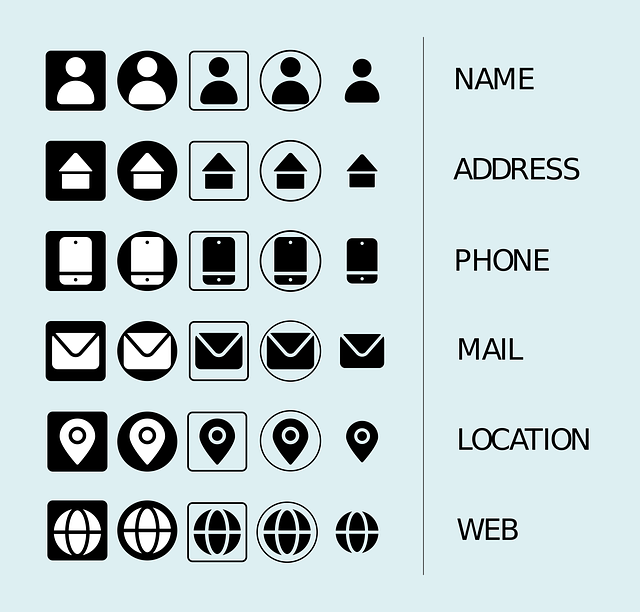E-commerce businesses face unique risks in today's digital landscape, requiring specialized Business Coverage insurance packages. This coverage protects against traditional perils like property damage and liability, as well as emerging threats such as data breaches, cyberattacks, and business interruption. It covers inventory, customer data security, legal liabilities, website downtime, payment processing issues, and return/refund management costs. Adequate Business Coverage enables online retailers to maintain continuity, protect assets, mitigate financial losses, and build customer trust. With global expansion, tailored business coverage is crucial to overcome diverse challenges like payment methods, shipping regulations, and marketing strategies. Personalized insurance solutions including property protection, liability coverage, and data security policies are vital components for comprehensive Business Coverage, ensuring e-commerce businesses can scale operations with peace of mind.
In today’s digital landscape, e-commerce businesses face unique challenges that require robust Business Coverage. This comprehensive guide delves into the essential aspects of protecting your online retail empire. From understanding the intricacies of e-commerce business coverage to navigating cyber risks and data breaches, we explore key components of effective insurance policies. Learn why business coverage is vital for online retailers aiming to thrive in a competitive market. Discover strategies to customize plans for scalability and international expansion, ensuring your e-commerce brand remains shielded against unforeseen events.
Understanding E-commerce Business Coverage: A Comprehensive Overview

E-commerce business coverage refers to the range and scope of protection offered by insurance policies tailored for online retail operations. It’s a comprehensive package designed to address the unique risks and challenges faced by e-commerce businesses in today’s digital landscape. This includes not just traditional risks like property damage and liability, but also emerging threats such as data breaches, cyberattacks, and business interruption caused by technological failures or external factors.
Understanding e-commerce business coverage involves grasping how policies cover various aspects of an online store’s operations. This can include protection for inventory both in transit and stored on-site, customer data security, and legal liabilities arising from product sales. It also extends to operational risks like website downtime, payment processing issues, and the costs associated with managing returns or refunds. By offering such wide-reaching coverage, insurance providers help e-commerce businesses maintain continuity, protect their assets, and mitigate potential financial losses.
Why Business Coverage is Essential for Online Retailers

Online retailers face unique challenges in today’s digital landscape, making robust business coverage more critical than ever. As e-commerce continues to grow, so does the need for protection against various risks specific to the online domain. These include data breaches, where sensitive customer information is compromised, and legal issues arising from contract disputes or intellectual property rights violations. Comprehensive business coverage acts as a shield, offering financial protection and peace of mind.
It also enables retailers to manage reputational damage, which can be swift and severe in the online world. A single incident can lead to negative publicity and a loss of customer trust. Adequate business coverage ensures that such events are met with resources for public relations management, legal defense, and potential compensation claims. Ultimately, it fosters a sustainable e-commerce environment by mitigating risks and ensuring businesses can thrive without constant worry.
Key Components of Effective E-commerce Insurance Policies

In today’s digital era, e-commerce businesses face unique risks and challenges that require tailored insurance policies to mitigate potential losses. Effective e-commerce insurance is a crucial component for any online retailer looking to safeguard their assets, protect customer data, and maintain operational continuity. The key components of such policies include comprehensive general liability coverage to protect against claims of bodily injury or property damage, as well as professional liability insurance to shield against errors and omissions that may result from faulty product information, returns processing, or shipping errors.
Business interruption insurance is another vital element, designed to cover lost revenue and additional expenses incurred during unexpected events such as data breaches, cyberattacks, or natural disasters. Additionally, e-commerce businesses should consider policies that address data privacy and security, like breach notification and credit monitoring services, given the sensitive nature of customer information collected and stored online. These comprehensive insurance measures enable businesses to navigate the complex landscape of online commerce with confidence, ensuring they are protected against potential risks and ready to adapt to an ever-changing digital environment.
Navigating Risks: Cyber Liability and Data Breaches

In today’s digital era, e-commerce businesses are not just navigating a competitive landscape but also a complex web of cyber risks and data breaches. As online transactions surge, so do potential threats such as hacking attempts, malware infections, and phishing scams. These risks can result in significant financial losses, damage to customer trust, and legal liabilities for businesses. Therefore, comprehensive business coverage that includes cyber liability insurance is essential. This kind of coverage helps protect against costs arising from data breaches, including forensic investigations, notification expenses, credit monitoring services for affected customers, and potential lawsuits.
To mitigate these risks effectively, e-commerce businesses should also implement robust cybersecurity measures. This involves regular software updates, strong encryption protocols, employee training on security best practices, and advanced firewalls. By combining adequate insurance coverage with stringent security protocols, businesses can better safeguard their operations, customers’ sensitive data, and maintain a competitive edge in the ever-evolving digital marketplace.
Product Liability: Protecting Your E-commerce Brand

In the realm of e-commerce, where transactions occur at a swift pace, establishing robust business coverage is paramount to safeguarding your brand against potential risks and liabilities. Product liability, as a key aspect of this coverage, plays a crucial role in protecting your online business from claims related to defective or hazardous goods. As an e-commerce retailer, ensuring the safety and quality of products you sell is not just a legal obligation but also a strategic move to maintain customer trust and loyalty.
By implementing comprehensive product liability insurance, you create a shield against lawsuits arising from product failures, injuries, or damages caused by your offerings. This coverage can extend to various scenarios, including manufacturing defects, incorrect product information on your website, or even third-party vendor mistakes. With the right business coverage in place, your e-commerce brand remains resilient, enabling you to manage potential crises effectively and focus on growing your online presence in a competitive market.
Professional Liability and Its Role in Customer Satisfaction

Professional Liability is a crucial aspect of any e-commerce business, playing a pivotal role in fostering customer satisfaction and trust. This type of coverage safeguards businesses against claims arising from professional negligence or mistakes made during the course of their operations. In the digital realm, where transactions happen swiftly and interactions are often global, the potential for errors or misunderstandings is ever-present. Whether it’s an inaccurate product description, a miscalculated shipping time, or a security breach, these issues can significantly impact customer experience.
By having robust Professional Liability coverage, e-commerce businesses demonstrate their commitment to protecting customers from such risks. It enables them to navigate through legal complexities and financial burdens, ensuring that any harm caused to customers is promptly addressed. This, in turn, enhances customer confidence, encourages repeat business, and fosters a positive reputation for the company, ultimately contributing to long-term success and growth within the competitive e-commerce landscape.
Understanding General Liability for E-commerce Operations

For e-commerce businesses, understanding General Liability is a cornerstone of comprehensive business coverage. This type of liability protection covers claims of bodily injury or property damage that may arise from your online operations. For instance, if a customer slips and falls while navigating your website due to poor design or content, general liability insurance can help manage medical expenses and legal fees that follow. Additionally, it protects against claims related to products sold, such as faulty merchandise causing harm.
Business coverage for e-commerce enterprises extends beyond general liability. It encompasses various risks unique to digital commerce, including data breaches, where hackers gain unauthorized access to sensitive customer information. Comprehensive insurance plans also cover business interruption due to cyberattacks, ensuring financial stability during recovery. Moreover, it includes professional liability insurance, which protects against errors and omissions in business practices, such as inaccurate order fulfillment or privacy policy violations.
International Expansion and Cross-Border Business Coverage

Expanding your e-commerce business globally opens up a world of opportunities, but it also presents unique challenges. International expansion requires a robust strategy for business coverage that accounts for cross-border transactions and varying market dynamics. E-commerce platforms must be designed to handle diverse payment methods, shipping regulations, and language barriers to provide seamless experiences for international customers.
Effective business coverage involves understanding local consumer behaviors, cultural nuances, and legal requirements in each target market. This includes adapting marketing strategies, ensuring product compliance, and establishing reliable logistics networks. By carefully navigating these aspects, e-commerce businesses can successfully expand their reach, tap into new customer bases, and build a strong global presence.
Customizing Insurance Plans for Scalable E-commerce Businesses

In the dynamic landscape of e-commerce, where businesses are constantly evolving and scaling, having tailored insurance plans is paramount for protection and peace of mind. Customizing business coverage to align with a company’s unique needs ensures that potential risks are addressed effectively. As online retailers expand their operations, from managing diverse product lines to navigating complex supply chains, their insurance requirements become equally multifaceted.
This personalized approach allows insurers to offer comprehensive solutions, including property coverage for warehouses and retail spaces, liability protection against customer claims, and specialized policies for data security and privacy—all essential components of a robust e-commerce business coverage strategy. By understanding the specific challenges faced by scalable online enterprises, insurance providers can create adaptable plans that grow alongside the business, providing long-term value and assurance.
